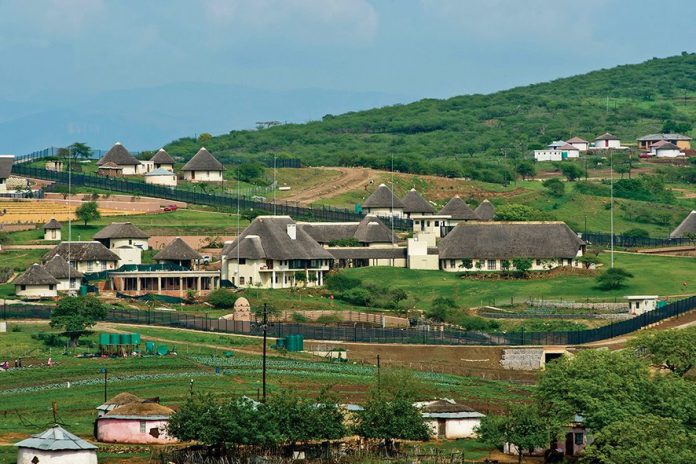Durban – Locals fondly call it Empandleni or emahlathini amnyama, taken from an IsiZulu phrase referring to “the place of the dark forests”, but to non-natives of the land, it is known as eNkandla.
Bongiwe Ngubane of KwaNxamalala village sighs heavily before lamenting the disastrous aftermath of former president Jacob Zuma’s incarceration on local tourism, saying the place is now shunned by tourists.
“Heritage tourism is the backbone of the livelihood of most households. UNxamalala [Zuma’s clan name] was the drawcard for local tourism.
“I run a small craft market specialising in IsiZulu bead work. I also sell traditional food to tourists. In the past three to five months, many people have frequented KwaNxamalala, some were visiting uMsholozi and some were international tourists who wanted to know more about the rich Zulu heritage of the area,” said Ngubane.
Ngubane, whose home is a stone’s throw away from the Zuma homestead and nestled below the rolling hills of Umphafa Nature Reserve, said the multimillion-rand Zuma compound has also created a hype for local tourism.
“In the past five years, the state-of-the-art Zuma homestead and the Nkandla forest were key drivers for our local economy. We benefitted substantially. But the numbers of tourists have since dwindled.”
She added that their hopes had been renewed following news in recent weeks that the former president might be granted an early release, and dashed when it became clear that this was not going to be the case.
Emahlathini amnyama has a historical significance and holds rich heritage and an important symbol for the AmaZulu nation resistance in the battle for recognition, fighting against the British colonial government that sought to force black farmers to pay tax levy for their herd of cattle and whatever they were producing on their lands.
It was in this forest surrounded by rolling hills and breathtaking views where Inkosi Bhambatha kaMancinza of the Zondi clan prepared amabutho (regiments) who fought the British forces against the repressive laws targeted at blacks.
The battle, which took place in 1906, became known as the Bhambatha rebellion, also known in IsiZulu as Impi kakhanda Mpondo.
In the resistance, Bhambatha was joined by a much-revered Inkosi Sigananda kaZokufa of the Shezi clan, also a native of eNkandla.
The village of KwaNxamalala and ancestral home of Zuma on the northern KwaZulu-Natal, about 75km away from eShowe, has also been, arguably, the breeding ground and trigger of recent violent protests that engulfed the country, mainly in KwaZulu-Natal and Gauteng, claiming more than 350 lives.
Also read:
Muvhango welcomes new actress Angela Atlang
Grieving granny tells of amapiano king Mpura’s last wish
Covid-19 positive cases hit ‘Generations: The Legacy’
Max Lichaba hits out at step son
Khanyi’s boyfriend accused of being part of vehicle scam
The Braai Show producers demand an apology from AKA
Lwandle Ndaba explains why he released song about stepdad Max Lichaba
Follow @SundayWorldZA on Twitter and @sundayworldza on Instagram, or like our Facebook Page, Sunday World, by clicking here for the latest breaking news in South Africa. To Subscribe to Sunday World, click here.
Sunday World



